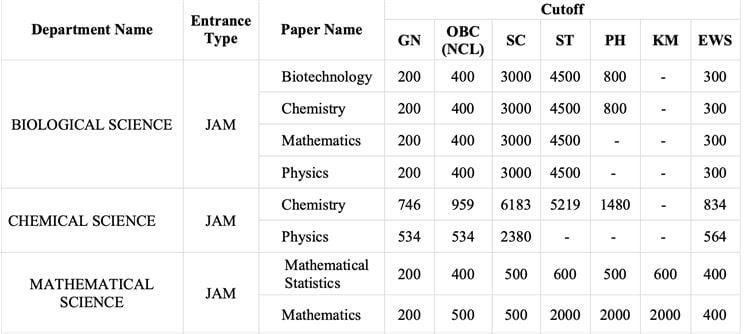
When the Indian Institute of Science (IISc)—India’s top research institute—admits a student with rank 4500 but rejects another with rank 201 for its Integrated PhD programmes (2025), something is deeply broken. If merit doesn’t define admission in the country’s most prestigious research institute, then what does?
This isn’t just about one seat or one program—it’s a mirror to the systemic flaws in how india treats talent, merit, and innovation. And this is exactly why india lags behind in global technology races like semiconductors, AI, and advanced research.
Here are seven reasons why such policies ensure india will keep struggling to become a developed nation:
1. Merit Takes a Backseat to Mystery Criteria
When a candidate with rank 201 is rejected while a rank 4500 gets selected, it screams of non-transparent, arbitrary admissions. If performance isn’t the benchmark, then why even hold competitive exams?
2. Opaque Systems Breed Mediocrity
Instead of rewarding the brightest minds, the system thrives on opaque selection processes that leave students demoralised and unsure about what truly counts. Innovation dies where fairness is absent.
3. Bureaucratic Admissions Kill Research Spirit
IISc is supposed to be India’s gateway to world-class research. But when bureaucracy overshadows merit, genuine researchers are pushed away, leading to brain drain—our brightest minds leaving india for fairer opportunities abroad.
4. The Semiconductor Race Example
india took decades to even attempt building a semiconductor ecosystem. Why? Because policies, institutes, and systems didn’t prioritise merit and innovation, preferring red tape, quotas, and arbitrary selection.
5. Mismatch Between Talent and Opportunity
By rejecting higher-ranked candidates, india effectively tells its youth: “Your effort doesn’t matter.” This mismatch kills aspiration and ensures mediocrity dominates classrooms and labs.
6. Global Competitors Don’t Play This Game
China, South Korea, and the US—these nations built their semiconductor and research ecosystems by investing in the best minds available. india, on the other hand, buries its own talent under unfair admission rules.
7. The Larger Curse: politics Over Progress
From research institutes to industries, selections are often guided by politics, quotas, and opaque “criteria.” Until india fixes this culture of systemic unfairness, “developed nation” will remain just a slogan, not a reality.
💡 Final Word:
If India’s No.1 research institute cannot uphold merit in admissions, how can we expect to compete with nations racing ahead in science and technology? Unless we stop insulting merit, india will remain a land of missed opportunities and delayed progress.




 click and follow Indiaherald WhatsApp channel
click and follow Indiaherald WhatsApp channel